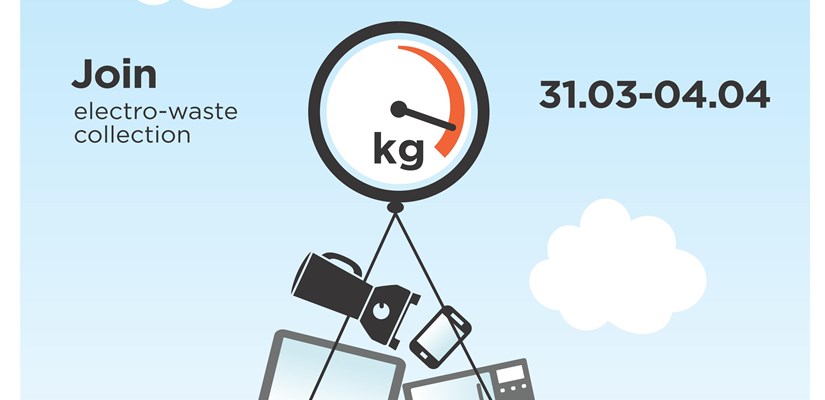
From March 31 to April 4, the “Lose your kilowatts” campaign will collect electrical waste (used electronics and electrical equipment) from buildings in Warsaw, Katowice, Łódź, Poznań, Tricity and Wrocław. Properties in the Czech Republic, Romania and Hungary have also joined. Each participating building will have a clearly-marked container where employees can leave old or obsolete electrical equipment. This will then be collected by specialised recycling companies – Stena Recycling (Poland), REMA System a.s. (Czech Republic), SC Total Waste Recycling SRL (Romania) and Al-Cu Service Kft (Hungary).
During last year’s initiative “Earth hour”, companies from the real estate sector collected over 9000 kgs of electrical waste (e-waste). This year’s goal is to collect 10 tonnes of e-waste and donate the proceeds to the "Synapsis" foundation for the purchase of energy saving equipment.
Technological innovation is driving the growth of the volume of electrical waste. Despite the ubiquitous bans, obsolete equipment is still often thrown straight into the rubbish bin, from where it lands in landfill sites or is dumped in forests. Meanwhile, the toxic substances which these items contain, seep into the soil polluting both the land and people. One small battery thrown into the rubbish can pollute 1m3 of the environment. One TV thrown into a small lake can poison that water ecosystem for several years. Meanwhile, recycling one refrigerator restricts CO2emissions by over 2 tonnes – as much as would be emitted if it was produced with new materials.
This is why it is important never to throw equipment into normal waste containers. It should always go into special containers or be delivered to collection points. Then it must be recycled. The materials recovered from recycled equipment can be used to make new things – e.g. materials from a refrigerator casing can be made into hubcaps, the glass door from a washing machine can be transformed into heat-proof dishes, while parts of old mobile telephones can be made into kettles.